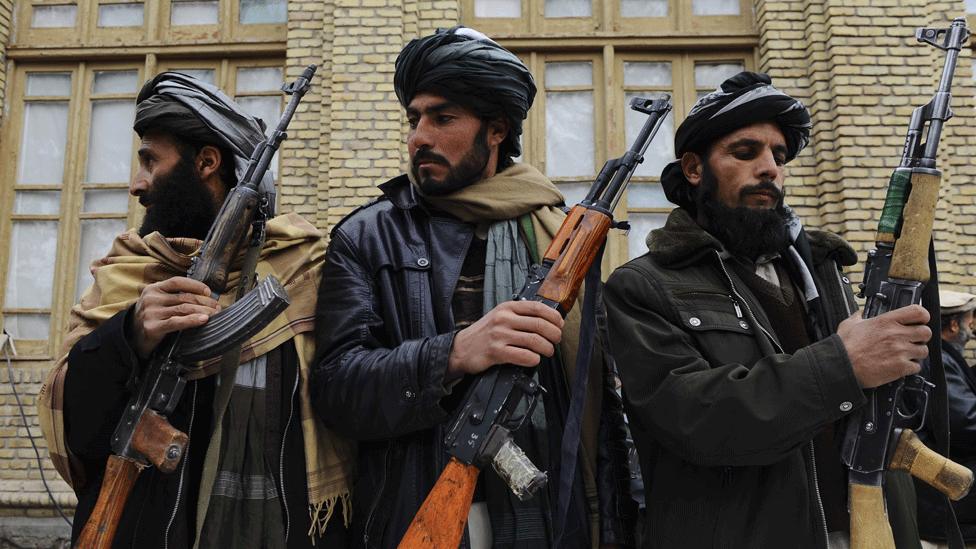Could the Afghan Taliban rift be healing?
- Published
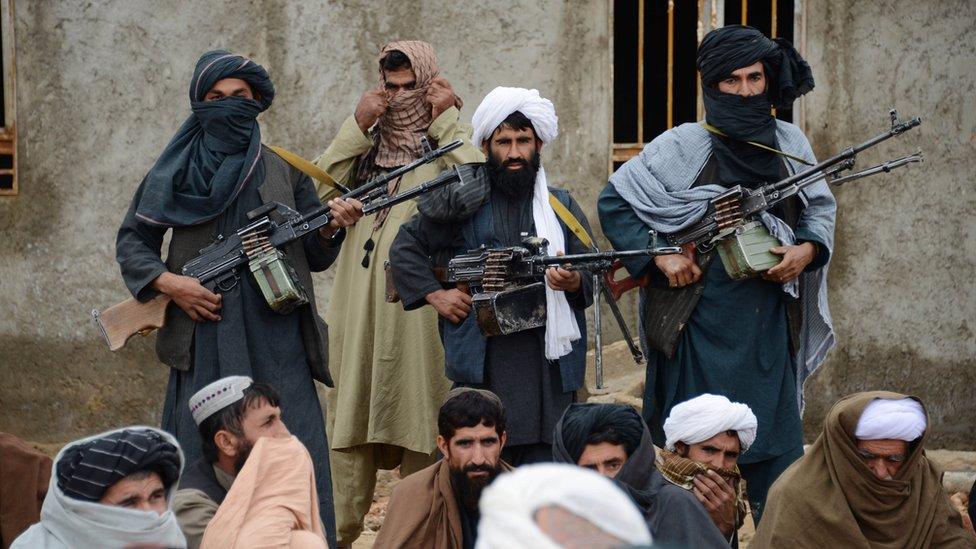
Some Taliban members still refuse to accept Mansour's leadership
Two relatives of the former leader of the Afghan Taliban, Mullah Omar, have been given senior posts in the insurgent movement. The BBC's Dawood Azami asks whether this could signal the end of a high profile rift between the new leadership and the old.
The power dynamics of the Afghan Taliban is once again in flux.
According to a Taliban statement, Mullah Muhammad Yaqub, the eldest son of Mullah Omar, was appointed as head of 15 out of Afghanistan's 34 provinces in the group's Military Commission, which functions as a war ministry and is the most important of the Taliban's nine commissions
His uncle and Mullah Omar's brother, Mullah Abdul Manan, was appointed as the head of the Preaching and Guidance Commission, responsible for recruitment, guidance, reintegration and defections.
They were also appointed to the group's powerful decision making body, the Leadership Council, which has around 20 members.
Although they do not have military or formal political power, their support is symbolically important and adds to the legitimacy of the Taliban's new supreme leader, Mullah Akhtar Muhammad Mansour.
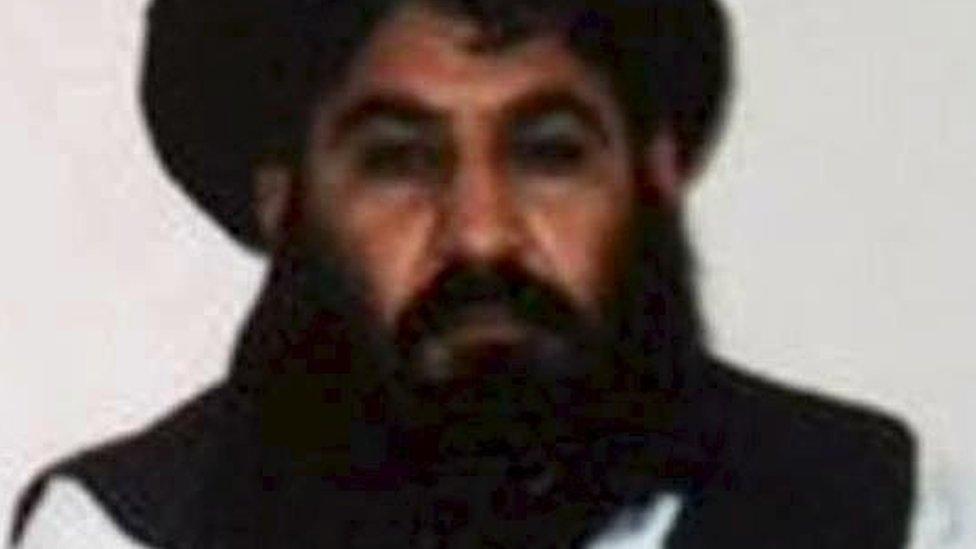
Mullah Akhtar Mansour quickly climbed through the Taliban hierarchy
Both Mullah Yaqub and Mullah Manan had opposed the appointment of Mullah Akhtar Mansour as new Taliban leader when it was revealed in July 2015 that Mullah Omar had been dead for more than two years.
Mullah Yaqub, who is said to be around 27 years old, reportedly graduated from a religious seminary in the Pakistani city of Karachi a couple of years ago.
Some leading figures within the group who opposed the appointment of Mullah Mansour rallied behind Mullah Omar's family and wanted Mullah Yaqub to replace his late father as the new supreme leader.
But after weeks of bargaining and negotiations, the two men issued statements accepting Mullah Mansour's leadership.
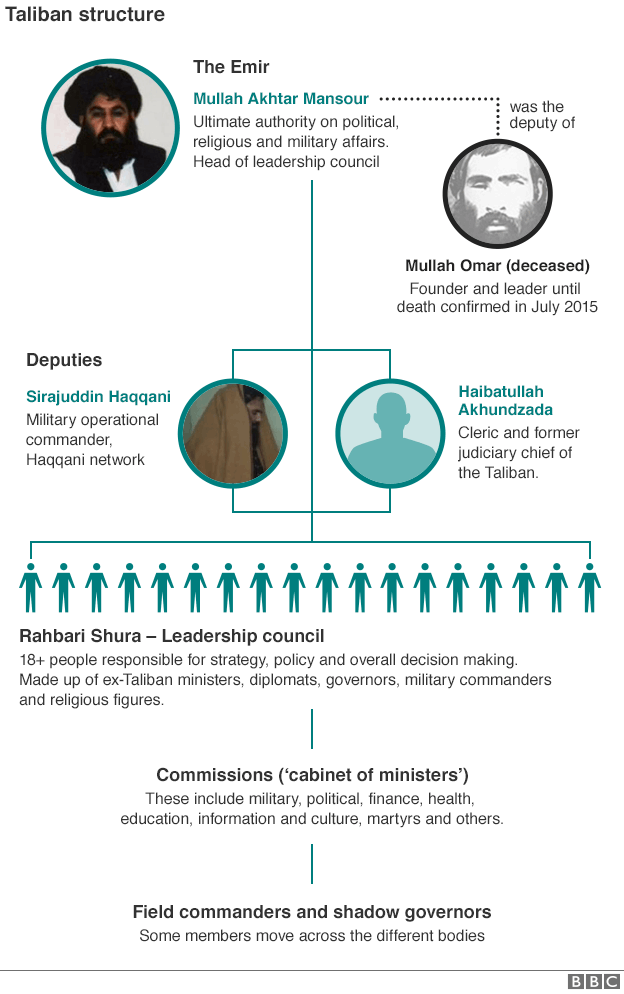
The appointments come just days after a Taliban heavyweight, Mullah Abdul Qayyum Zaker, who had remained "neutral" in the power struggle, declared his support for the new leader.
Mullah Zaker, who served as head of the Taliban's Military Commission after his release from Guantanamo prison, is one of the most powerful military commanders of the Taliban.
But on 30 March, the Taliban emailed a handwritten letter signed by Mullah Zaker to media and published it on their website. In the letter, Mullah Zaker said that his previous "reservations" had been dealt with and that he now pledged allegiance to Mullah Akhtar Mansour.
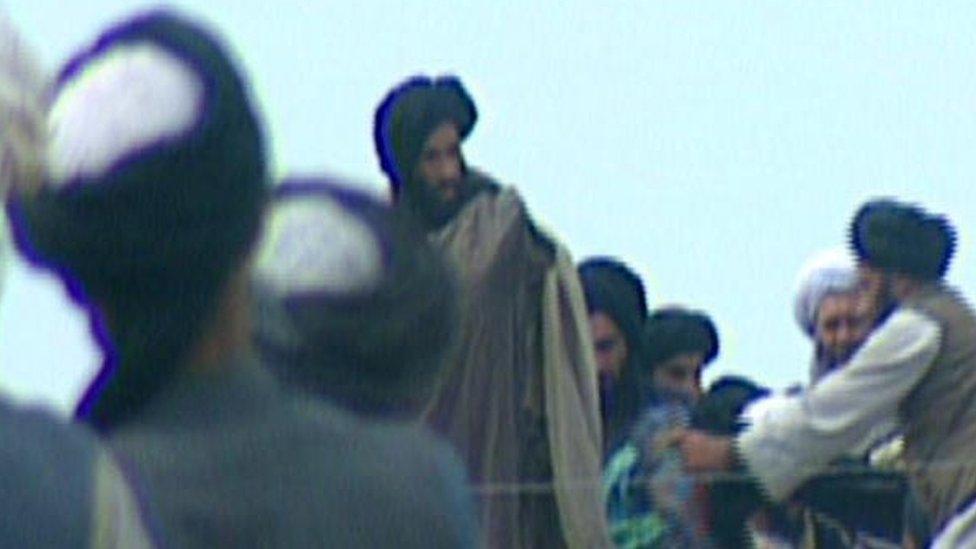
Few pictures exist of Mullah Omar, the secretive former leader of the Afghan Taliban
The appointments of some of the closest relatives of the group's founder to leadership positions, and the loyalty pledge from powerful commanders like Mullah Qayyum Zaker, closes a rift within the group and strengthens the position of Mullah Mansour - who had been secretly leading the group in Mullah Omar's name for more than two years after he died.
But it does not mean the end of Mullah Mansour's troubles.
'Decisive Battle'
A splinter group, though significantly weakened by fighting with the main faction, is still active and vows to fight against what it calls Akhtar Mansour's "power grab".
Clashes between fighters from the two groups occasionally break out since the breakaway faction was established in November 2015 under the leadership of Mullah Muhammad Rasool.
And Mullah Mansour still needs to reconcile some of the leading Taliban figures who have not yet publicly pledged allegiance to him.
Despite fighting on multiple fronts - against the splinter group, the Islamic State group, the Afghan government, and its foreign allies - the main Taliban faction has been resurgent in Afghanistan.
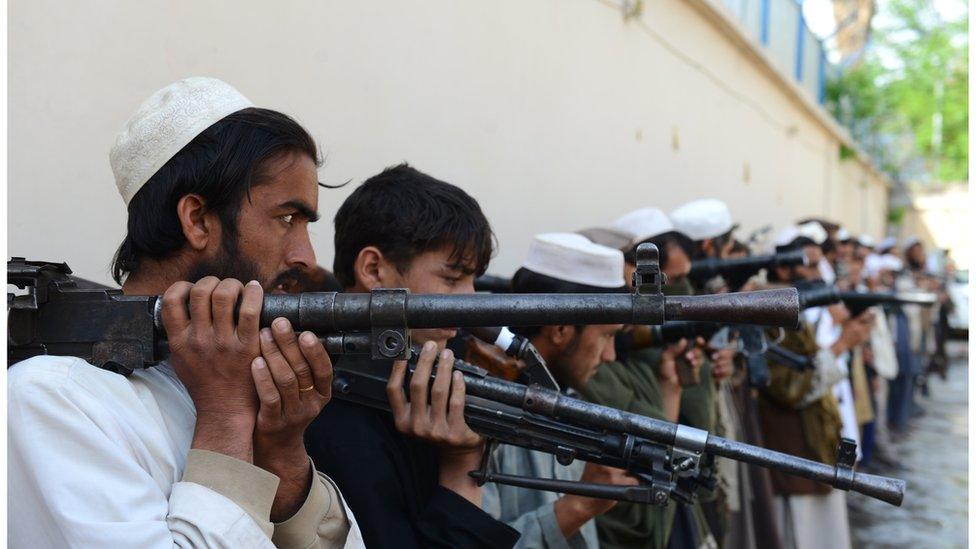
Despite the resurgence, some Taliban have handed in their weapons as part of peace-building programmes
The timing of these new developments is also important.
The Taliban are expected to announce their annual Spring Offensive by the end of this month.
Around three weeks ago, Mullah Akhtar Mansour told his followers to prepare for what he called "the final push" and hoped for "good victories in the coming months."
The return of important figures to the fold and greater unity within the group will also impact possible peace talks, and the implementation of any future agreement.
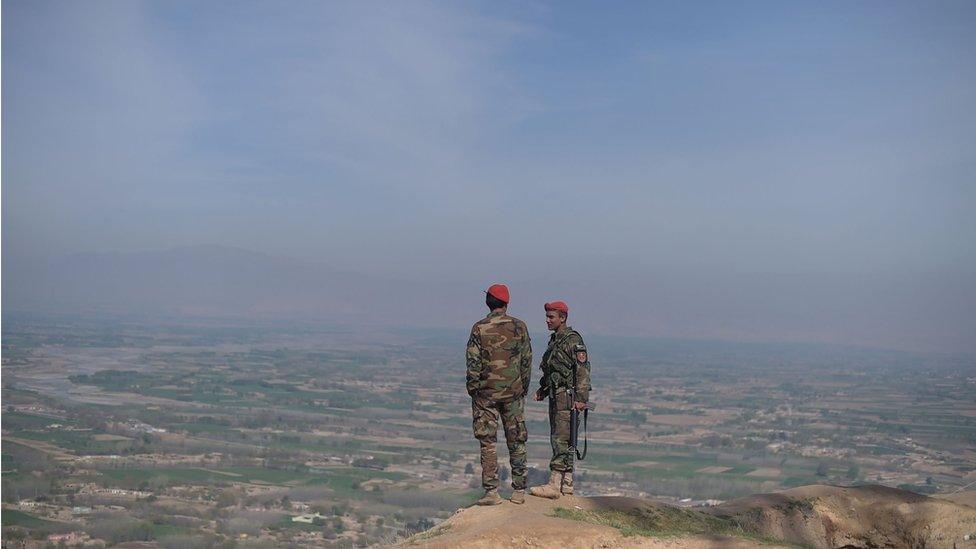
Afghan government forces have been battling a resurgent Taliban
The Taliban have so far refused to hold direct talks with the Afghan government, demanding conditions such as the withdrawal of foreign forces, removal of their leaders' names from sanction lists, and the release of Taliban detainees.
The fighting and talking - or at least talking about talking - looks set to continue side-by-side for another important year in Afghanistan.
- Published3 March 2016
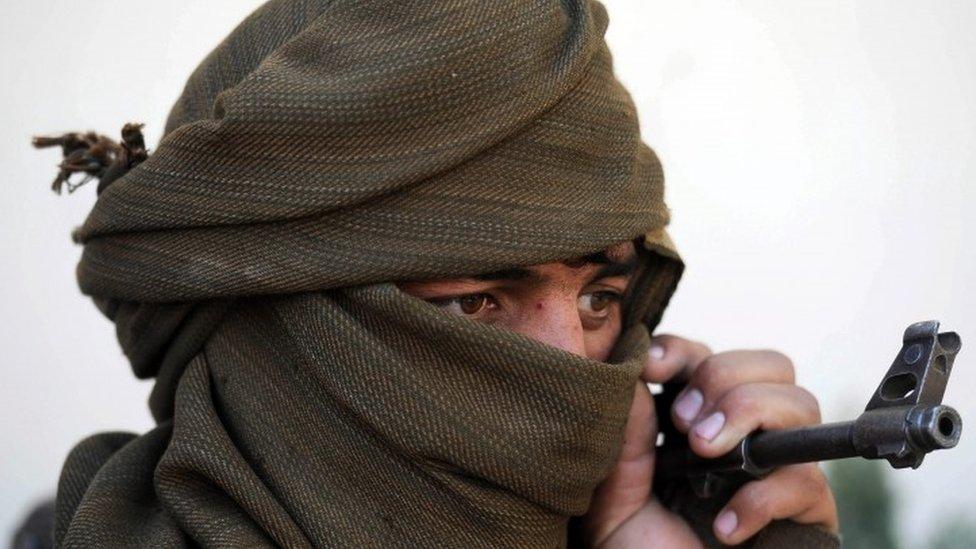
- Published27 February 2016
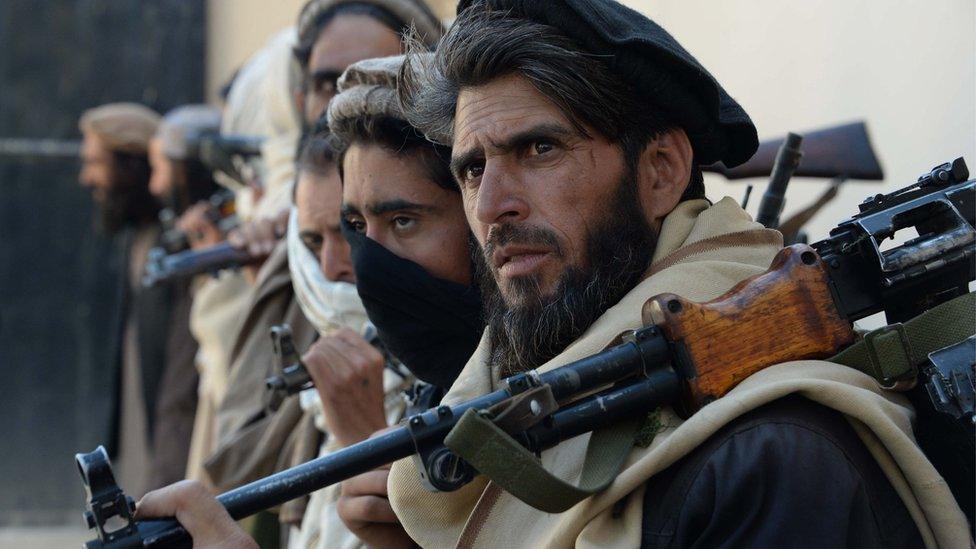
- Published20 February 2016
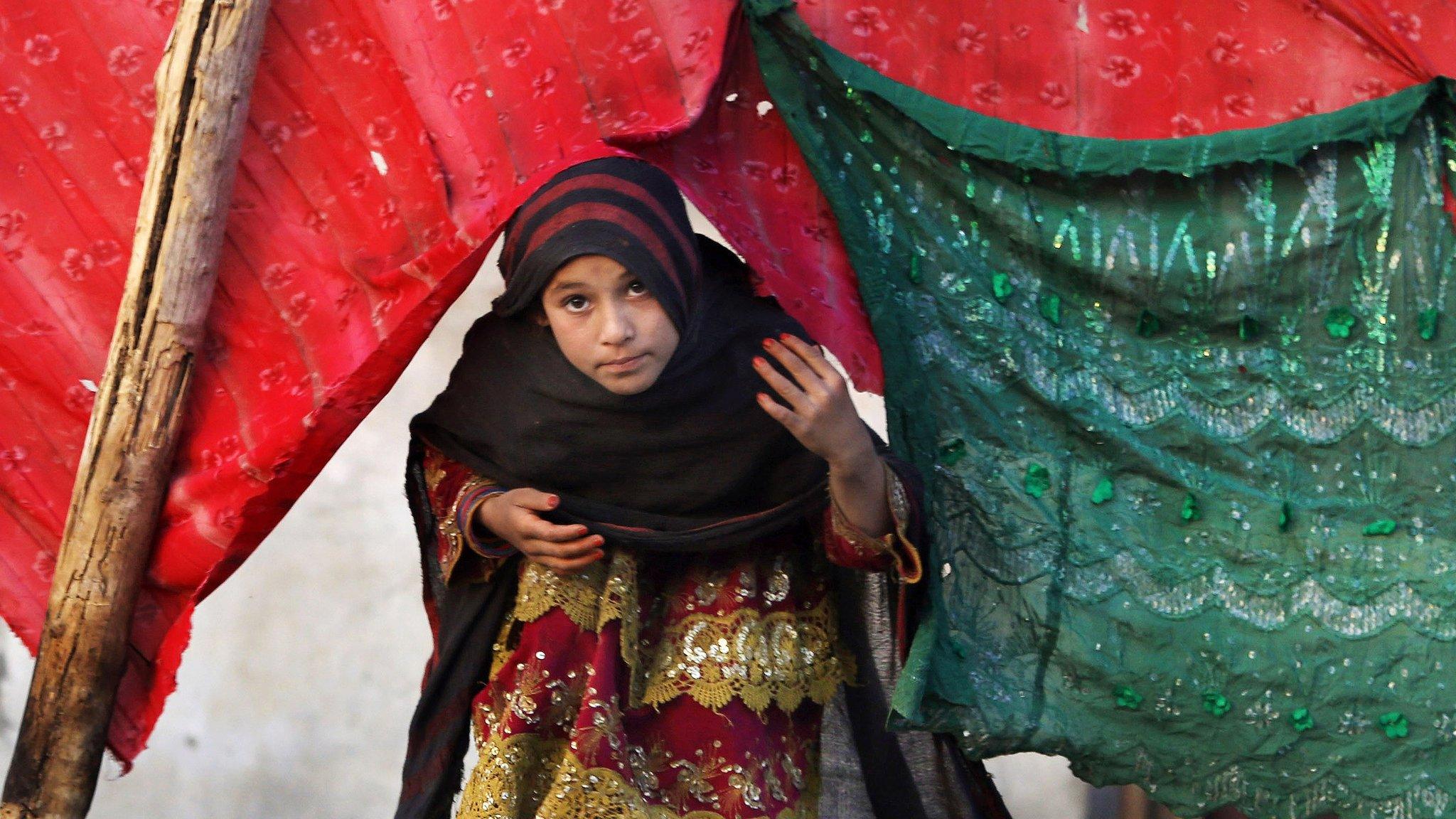
- Published5 January 2016
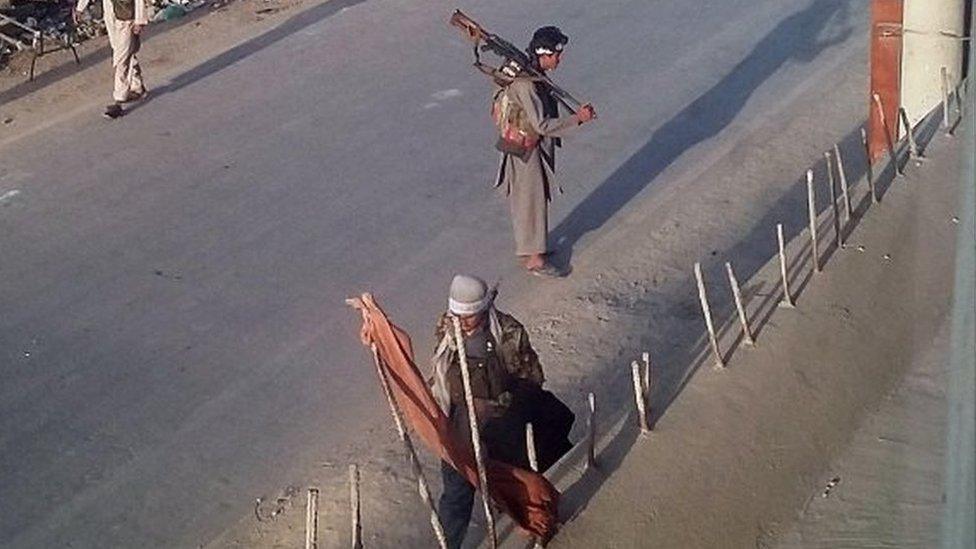
- Published23 September 2015
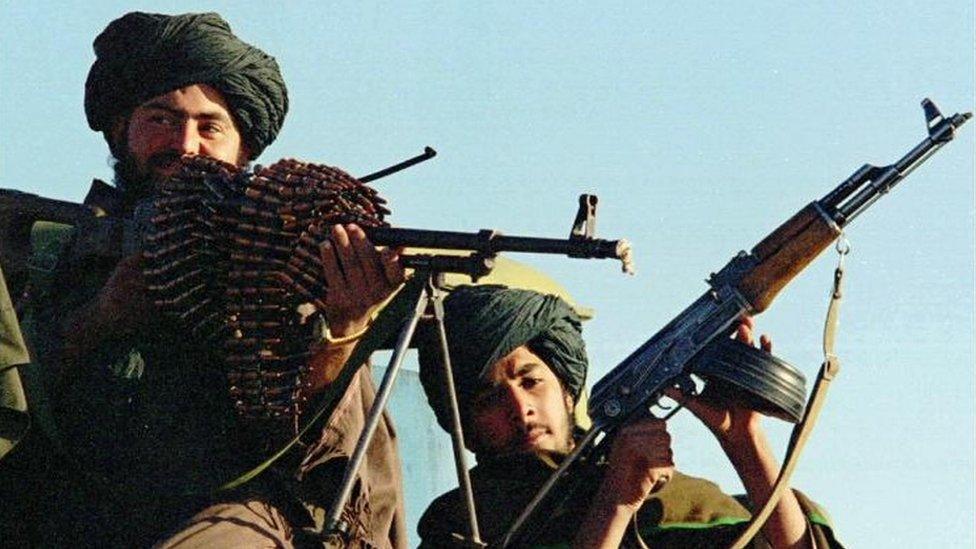
- Published12 August 2022
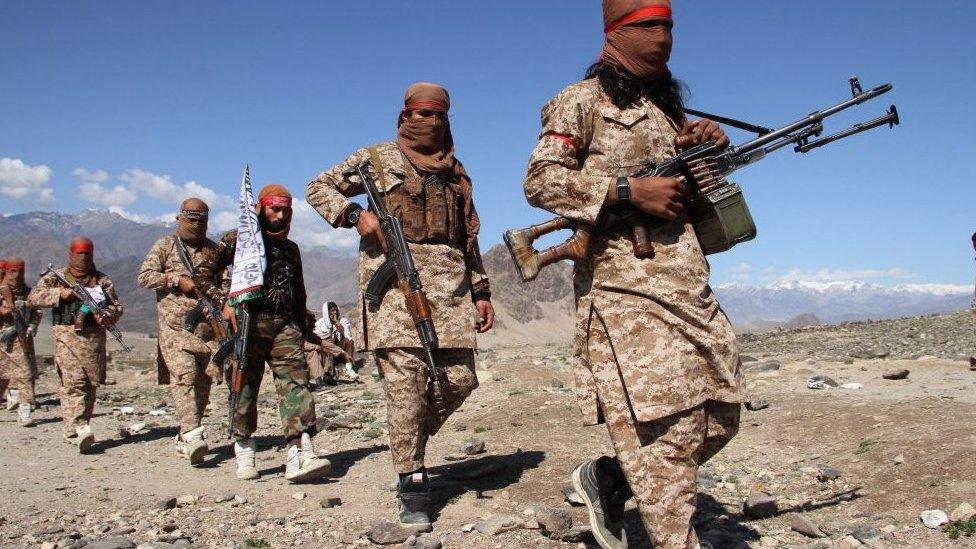
- Published18 December 2015
